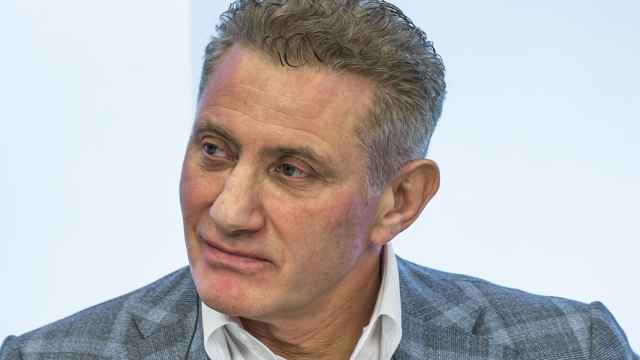The government should avoid deeper austerity measures at a time of slowing economic growth, Finance Minister Anton Siluanov said Tuesday.
But he also said that without further structural reforms to the budget and measures to cut spending by state monopolies, Russia may face "significant risks" from a rise in spending within five years.
His comments came on the day that the International Monetary Fund urged Russia to pursue gradual fiscal tightening in the medium term, warning that risks to Russia's economy "are tilted to the downside."
Siluanov disagreed with the IMF's call for deeper cuts, saying the budget of the world's eighth-largest economy was already tight enough.
"In a period of slower growth in the economy one should not cut state demand because that will deliver a double blow to the economy," Siluanov said.
The economy grew by 1.2 percent in the second-quarter, half the rate of the U.S. and even further below most of Russia's emerging market peers. Growth estimates for the year now stand at 1.8 percent, half the initial forecasts.
Last week, the government approved a budget for the next three years that partially postponed financing of President Vladimir Putin's wide-ranging pre-election promises. Despite those cuts, however, the budget deficit will not disappear.
In 2015, Russia now foresees a deficit of 1 percent of gross domestic product, projecting that to narrow to 0.6 percent of GDP in 2016.
Stripping out oil and gas taxes, which account for over half the federal budget, the underlying picture looks more difficult. The non-oil deficit, which the IMF has repeatedly urged Russia to cut, will fall from 10.3 percent of GDP in 2013 only to 8.4 percent in 2016, twice the pre-financial crisis level.
Siluanov defended the 2013-2016 budget as having "turned out well" despite a lot of pressure to raise spending.
But he warned that the three-year plan leaves costly spending decisions to be financed in 2017-18, including a planned rise in military spending, which meant Russia should already prepare for "this difficult period."
Closer attention should be paid to the state monopolies which dominate the economy, he said, suggesting their costs could be reduced by as much as 10 percent without cutting back on the goods and services they need to operate.
"As we say in Russia: Many make money not from profit but from costs," Siluanov said. "The government should look into how effective are procurement and investment by large companies with state stakes in them, how they correspond with national goals."
A Message from The Moscow Times:
Dear readers,
We are facing unprecedented challenges. Russia's Prosecutor General's Office has designated The Moscow Times as an "undesirable" organization, criminalizing our work and putting our staff at risk of prosecution. This follows our earlier unjust labeling as a "foreign agent."
These actions are direct attempts to silence independent journalism in Russia. The authorities claim our work "discredits the decisions of the Russian leadership." We see things differently: we strive to provide accurate, unbiased reporting on Russia.
We, the journalists of The Moscow Times, refuse to be silenced. But to continue our work, we need your help.
Your support, no matter how small, makes a world of difference. If you can, please support us monthly starting from just $2. It's quick to set up, and every contribution makes a significant impact.
By supporting The Moscow Times, you're defending open, independent journalism in the face of repression. Thank you for standing with us.
Remind me later.





